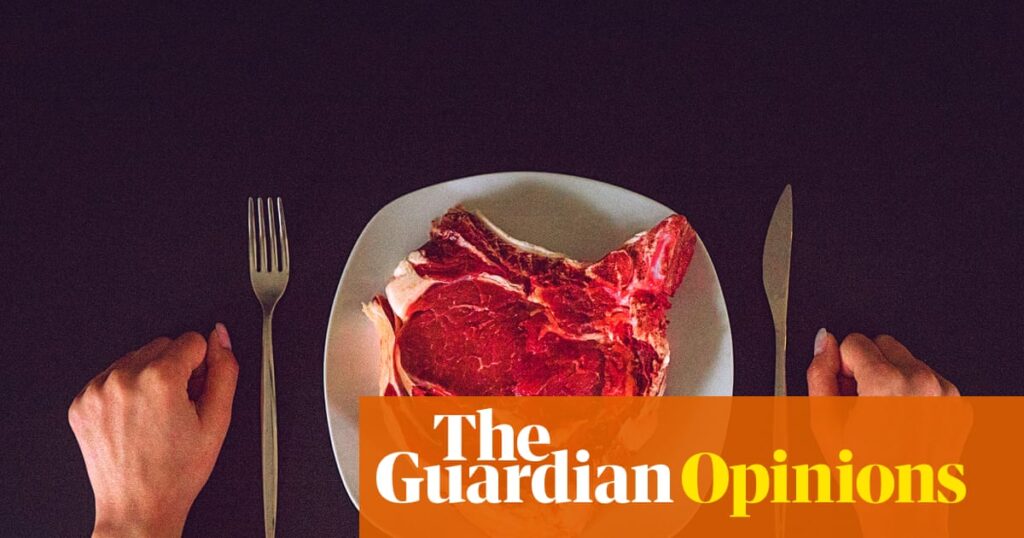Once, it seemed that much of the world was intent on drastically cutting back on meat for health and environmental reasons. Vegetarian and vegan options appeared on restaurant menus and the very idea of a bloody red steak became almost unthinkable in liberal circles. And yet the carnivore diet is now all over Instagram and TikTok, prompting health bodies to start issuing warnings.
Followers of this diet eat meat, fat, seafood, eggs and butter, avoiding all vegetables, fruits, grains and legumes as if plants were, as Paul Saladino, an advocate of this diet alleged, “poison”. Dr Saladino is a US psychiatrist and health influencer with a range of supplements called Heart and Soil that contain dried animal organ meat. He appears shirtless on social media, denouncing vegetables, which he says will harm us. Other Instagrammers tuck into plates of huge steaks and seven or more eggs for breakfast. It’s not just for weight loss.
Joe Rogan has claimed on TikTok that his brain was working better after a week of meat, fat, bacon and eggs, and nothing else. Others show off huge muscles or say their skin has improved. There’s something messianic in their insistence that going carnivore has changed their life.
This is a virtually zero-carbohydrate, high-fat diet, whose antecedents are the Banting diet, promoted as early as 1863, the Atkins diet in 1972 and the ketogenic diet, originally developed in the 1920s as a treatment for epilepsy, but reborn in the 1990s for weight loss. They force the body to burn energy from its fat stores, instead of glucose from carbohydrates, inducing a state known as ketosis. People on low-carb diets can lose the initial pounds quickly. But studies comparing the results with those of people eating a mixed diet found that after a year, the weight loss was the same. What works best is the diet that you can stick to.
The British Heart Foundation says that the carnivore diet could be harmful. “Extreme diets high in saturated fat and low in fibre are known to raise cholesterol levels, increasing the risk of heart attack and stroke,” it warned last month. Eating protein and fat does not raise blood sugar levels as much as carbohydrates, but cutting down on carbs – not cutting them out – is the answer, or you lose fibre that is crucial for the immune system, as well as other nutrients. Reports that parents are putting infants on these diets are particularly alarming.
But protein is trending, and no longer just for bodybuilders and sports enthusiasts. Supermarkets are full of protein-packed snacks, ready-meals and shakes for shoppers who have heard that it will build them a better body. Yet almost everyone eats more protein than they need: a minimum of 0.75g per kilogram of body weight, according to NHS-backed guidelines, although athletes and older people may need more. That’s around 56g a day for an average man and 46g for an average woman, equivalent to a bowl of cereal with skimmed milk, a Greek yoghurt and a lean chicken breast.
Nutrition shouldn’t be a fashion item. Fad diets don’t work. Balanced eating is best for health, most experts say, as in the Mediterranean diet, which includes a wide variety of fruits, vegetables, wholegrains and seeds, and even permits a bit of red wine. It may not go viral on TikTok, but it works. We should all drink to that.
-
Do you have an opinion on the issues raised in this article? If you would like to submit a response of up to 300 words by email to be considered for publication in our letters section, please click here.


